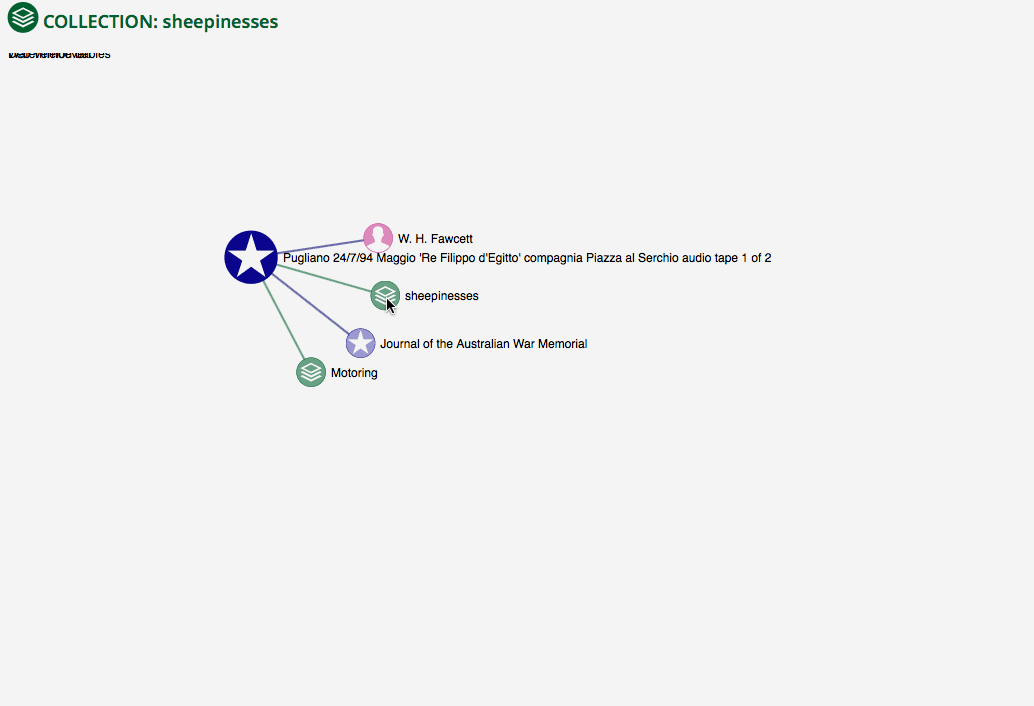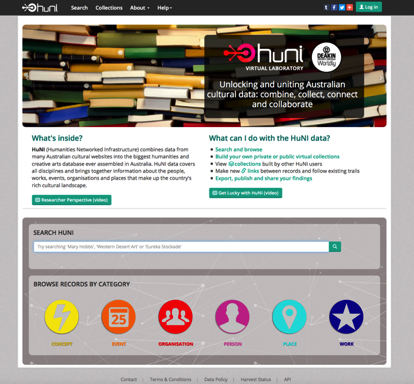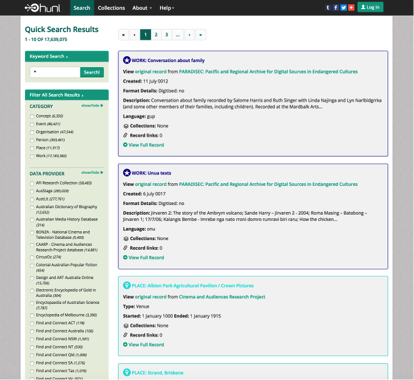Unlocking and uniting Australia’s cultural datasets
Client: Deakin University
Deliverable: HuNI
Problem:
Australia has a great wealth of cultural datasets available to researchers. Each of these datasets is unique, with its own target audience, its own structure, and its own data and access priorities. Each dataset has been designed specifically for its own data and audience and provides access to highly curated data of an exceptionally high standard. Many of these datasets are embedded in research practices and are used extensively in particular disciplines. Beyond these direct disciplines, the existence of such rich resources can often be relatively unknown. But the ability to search resources that cross disciplines is of immense benefit to researchers.
Solution:
The Humanities Networked Infrastructure (HuNI) is a national Virtual Laboratory project developed as part of the Australian government’s NeCTAR (National e-Research Collaboration Tools and Resources) program. HuNI combines information from 30 of Australia’s most significant cultural and creative arts datasets. These datasets comprise more than 2 million authoritative records relating to the people, organisations, objects and events that make up Australia’s rich cultural heritage.
HuNI is a new research and discovery platform developed by and for humanities and creative arts scholars. HuNI enables researchers to work with and share this large-scale aggregation of cultural information. HuNI provides discovery tools for casual users from the wider community. More sophisticated functionality is available to researchers who register for an account in the virtual laboratory.
Strategic Data provided partner technical support, infrastructure design, software development, and product management services during the development of the production HuNI Lab and maintained the data harvest toolchain. Deakin University were keen to partner with Strategic Data due to our longstanding history of working on complex data capture projects involving multiple stakeholders and our ability to mesh human factor issues with intelligent IT/database design.
Results:
The HuNI Virtual Laboratory is designed to support the nonlinear and recursive research methods practiced in the humanities. HuNI provides discovery tools for casual users from the wider community, but more sophisticated functionality is available to researchers who register for an account in the virtual laboratory. The HuNI VL enables researchers to create, save and publish selections of data; to analyse and manipulate the data; share findings and to export the data for reuse in external environments.
HuNI also enables researchers to assert relationships between records in the form of ‘socially linked’ data which are visualised as a dynamic network graph. This capability contributes to the building of a ‘vernacular’ network of associations between HuNI records that recognise that there are diverse perspectives on knowledge and amplify avenues for research discovery beyond keyword and phrase searches.



